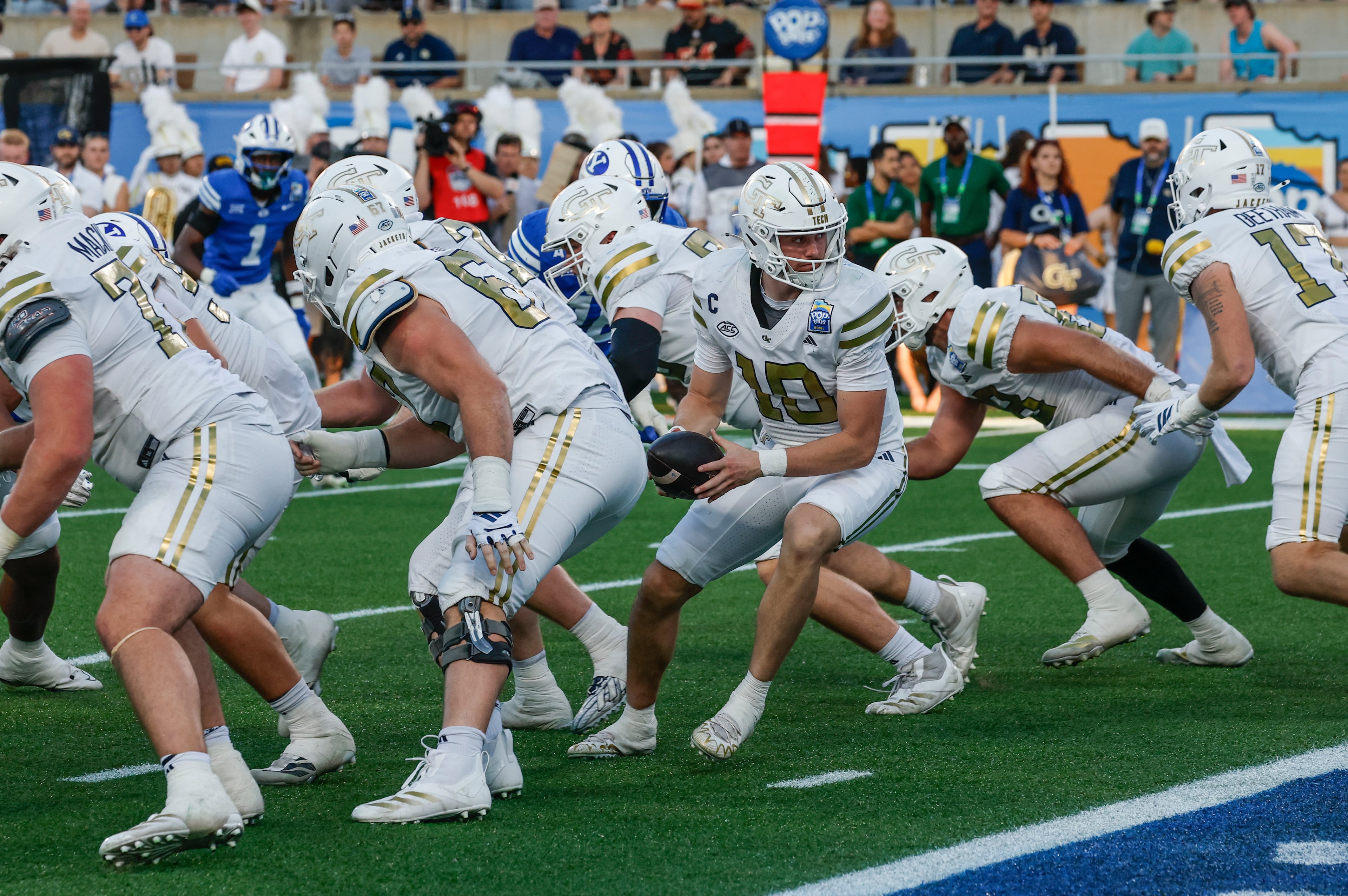Comparing Georgia Tech’s signing day with its competition

While Georgia Tech’s signing class is small, its proponents would contend that there is a depth of talent concentrated among the 15 future Yellow Jackets that coach Geoff Collins recruited in his 2022 high-school signing class.
To start, Tech’s high-school class includes two four-stars by the measure of the 247Sports Composite ranking, running back Antonio Martin (Langston Hughes High) and defensive back Jaylin Marshall (Western High in Davie, Fla.).
Further, six more prospects – running back Jamie Felix (Camden County High), offensive lineman Tyler Gibson (Johns Creek High), defensive linemen Horace Lockett (Westlake High) and K.J. Miles (St. Peter’s Prep in Jersey City, N.J.), quarterback Zach Pyron (Pinson Valley High in Pinson, Ala.) and wide receiver D.J. Moore (Archer High) – were rated a four-star prospect by Rivals, 247Sports or ESPN. That’s eight of 15 that one of the three most recognized ranking services deemed as blue chips. For a team that has had three consecutive three-win seasons, that would seem a solid talent haul.
According to data provided by Tech, the four Rivals 4-stars in the 15-player class represent the Jackets’ highest concentration of 4-star recruits since the famed 2007 class.
It might be a salve for Tech fans less than enthused about the Jackets’ class of high-school prospects ranking 53rd nationally and eighth in the ACC. They also might gain some hope from the Jackets’ group of seven transfers being ranked 22nd in FBS and third in the ACC.
But it’s in comparing Tech’s progress with its ACC competition that the uphill fight that Collins is waging, both on the field and in recruiting, is spelled out.
By the measurement of the 247Sports Composite, which incorporates its own 247Sports ranking with those of ESPN and Rivals, Tech gained five players (either high-school signees or transfers) who had a 4-star rating. That’s Martin, Marshall and three transfers – defensive back Ahmari Harvey (Auburn) and offensive linemen Pierce Quick (Alabama) and Paul Tchio (Clemson), all of whom were four-star prospects coming out of high school before seeing little or no playing time with their initial college teams.
However, at the same time, the Jackets were outdone in volume by Miami (12 new 4-stars) and Clemson, Florida State and North Carolina, all of whom picked up 10 players each (high-school signees or transfers) who are rated either 4- or 5-stars.
North Carolina’s signing class, in fact, finished ahead of Clemson’s, the first time the Tigers didn’t have the top recruiting class in the conference since 2017. In case you missed it, Tech competes with Miami and North Carolina in the Coastal Division and plays Clemson annually.
(Worse for the Jackets, they also lost six 4-star players from the 2021 roster, most significantly running back Jahmyr Gibbs and defensive end Jared Ivey, both of whom transferred.)
The bottom line: While Tech has made gains in talent accrual, its main competition is doing the same, but in bigger numbers. As Collins struggles to fulfill his vision of establishing Tech as an elite power, it’s a sobering thought. It’s tough to compete for conference championships when simply winning the division means getting past two teams that, at least on paper, are more talented.
The amassing of 4-stars is not the only indicator of success, of course. Pittsburgh, for instance, won the ACC last season with 12 4-stars, eighth most in the conference. In the conference title game, the Panthers beat Wake Forest, which won the Atlantic Division with a measly three 4-stars.
All the Tar Heels’ 29 4- and 5-stars on the 2021 roster could produce was a 6-7 record, including a loss to the Jackets.
In former coach Paul Johnson’s final season, the Jackets managed seven wins and nearly won the Coastal Division with a trio of 4-stars on the roster.
Collins has used the transfer portal to procure ready-to-play contributors such as slot receiver Kyric McGowan and offensive tackle Devin Cochran, and incoming running back Hassan Hall (Louisville) could be another instant playmaker. The turnover in coaching staff also could be a net positive. The 2022 season would be a convenient time for the strength and weight gains catalyzed by strength-and-conditioning coach Lewis Caralla to be brought to bear.
The formula doesn’t have to include more blue chips than the competition. But it certainly helps.



